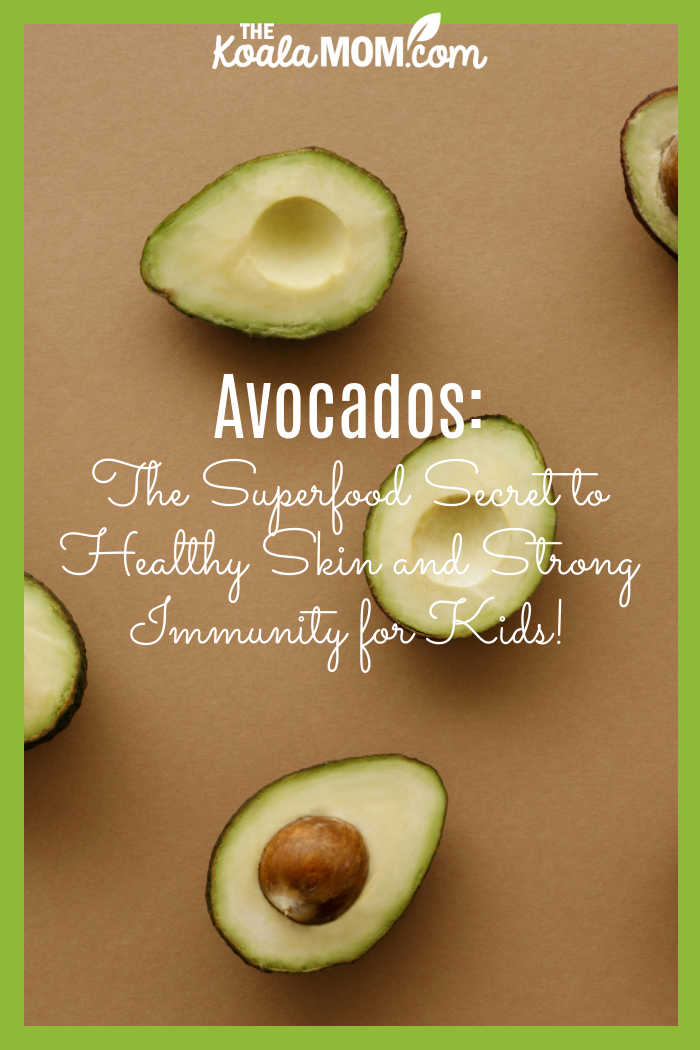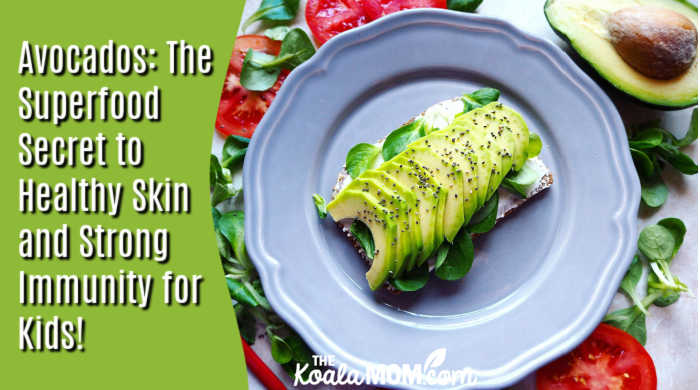As parents, we are constantly on the lookout for nutritious foods that can support our children’s health and development. One such food that stands out is the humble avocado. Often dubbed a superfood, avocados are packed with essential nutrients that can enhance children’s well-being, particularly concerning skin health and immune function. In this article, we’ll explore the remarkable benefits of avocados for kids, along with tips on how to incorporate this versatile fruit into their diets.

This post contains affiliate links; as an Amazon associate, I earn from qualifying purchases.
Nutritional Profile of Avocados
Avocados are a nutritional powerhouse, providing a unique blend of healthy fats, vitamins, and minerals. A medium avocado contains around 250 calories and is rich in monounsaturated fats, which are heart-healthy and help promote good cholesterol levels. They are also a great source of:
- Vitamins: Avocados are high in vitamins E, C, K, and several B vitamins, all of which play vital roles in maintaining overall health. Vitamin E, for instance, is a powerful antioxidant that helps protect cells from damage and supports healthy skin.
- Minerals: Avocados provide important minerals such as potassium, which is essential for maintaining healthy blood pressure levels and proper muscle function, and magnesium, which is crucial for bone health and energy production.
- Fiber: With about 10 grams of fiber per medium avocado, they help promote healthy digestion and can keep children feeling full longer, reducing the likelihood of unhealthy snacking.
Skin Health Benefits
Healthy skin is essential for children, not only for aesthetic reasons but also for protecting against environmental factors. The vitamins and healthy fats in avocados contribute significantly to skin health:
- Hydration: Avocados are rich in healthy fats, which help maintain the skin’s moisture barrier. This is especially important for children who may suffer from dry or sensitive skin. Regular consumption of avocados can lead to more hydrated, supple skin.
- Antioxidant Protection: The vitamins E and C in avocados act as antioxidants, helping to protect the skin from oxidative stress caused by free radicals. This is particularly beneficial for children who spend a lot of time outdoors, as sun exposure can lead to skin damage. Antioxidants can also aid in the repair of damaged skin cells.
- Anti-Inflammatory Properties: Avocados contain compounds that have anti-inflammatory effects, which can help soothe skin irritations and conditions such as eczema or acne. This makes avocados a valuable addition to a child’s diet, especially if they are prone to skin issues.
Immune System Support
A strong immune system is crucial for children, helping them fend off common colds, flu, and other illnesses. Avocados can play a significant role in boosting immune health due to their rich nutrient content:
- Vitamin C: Known for its immune-boosting properties, vitamin C is abundant in avocados. This vitamin helps stimulate the production of white blood cells, which are vital for fighting off infections. Including avocados in your child’s diet can enhance their body’s ability to ward off illnesses.
- Healthy Fats: The monounsaturated fats in avocados support the absorption of fat-soluble vitamins, including vitamins A, D, E, and K, which are essential for maintaining a robust immune system. By consuming avocados alongside other nutrient-rich foods, children can maximize their vitamin intake.
- Fiber for Gut Health: A healthy gut is closely linked to a strong immune system. The fiber in avocados helps support a healthy gut microbiome, which plays a critical role in immune function. By promoting regular bowel movements and feeding beneficial gut bacteria, avocados can contribute to improved overall health.
Incorporating Avocados into Your Child’s Diet
Introducing avocados into your child’s diet doesn’t have to be a struggle. Here are some creative and fun ways to enjoy this nutrient-dense fruit:
- Smoothies: Blend avocados into smoothies for a creamy texture and added nutrients. Combine them with fruits like bananas, spinach, or berries for a delicious and healthy drink that kids will love.
- Guacamole: Making guacamole is a fun activity for kids. Let them mash avocados and mix in their favorite ingredients, such as tomatoes, lime juice, and cilantro. Serve it with whole-grain tortilla chips or fresh veggies for a tasty snack.
- Avocado Toast: Encourage your kids to get involved in meal preparation by making avocado toast. Spread mashed avocado on whole-grain bread and let them top it with their favorite ingredients, such as sliced tomatoes, cheese, or a poached egg.
- Creative Shapes: Use cookie cutters to create fun shapes from sliced avocados. This playful presentation can make avocados more appealing to children and encourage them to try new foods.
- Pasta and Rice Dishes: Incorporate avocados into pasta salads or rice dishes. Toss diced avocado with whole-grain pasta, cherry tomatoes, and a light dressing for a nutritious meal that’s easy to prepare.

Creating Healthy Habits
Avocados are more than just a trendy food; they offer substantial health benefits for children, especially concerning skin health and immune support. By incorporating avocados into your child’s diet, you can help them enjoy better overall health, resilience against illnesses, and radiant skin. With their creamy texture and mild flavor, avocados can be enjoyed in a variety of delicious ways, making them a perfect addition to any family meal.
As you embrace this superfood, you’ll not only nourish your child’s body but also instill healthy eating habits that can last a lifetime.

No Responses Yet